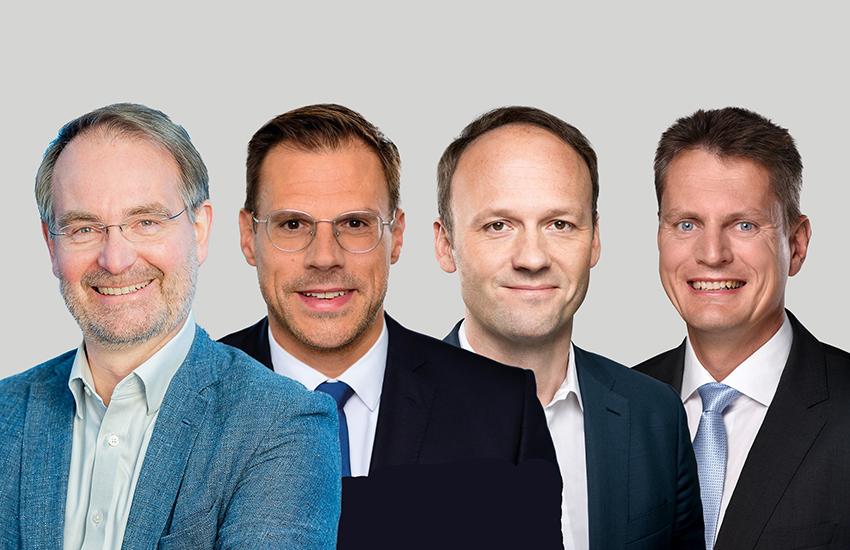2025-07-07
residential

German residential property investors are increasingly shifting their focus to foreign markets due to persistent challenges in the domestic sector. High construction costs, lengthy approval processes, regulatory uncertainties, and changing political requirements are making it more difficult to develop new housing projects in Germany. These issues were discussed during the online press conference “Beyond Germany: Why residential investors are shifting their focus abroad.” Industry experts Pepijn Morshuis (CEO of Trei Real Estate), Felix Meyen (Managing Director of HIH Invest Real Estate), Michael Keune (Managing Director at Catella Investment Management), and Gerhard Lehner (Head of Germany at Savills Investment Management) shared insights into current market trends and their international strategies. Germany Faces Approval Delays Pepijn Morshuis highlighted how prolonged approval procedures hinder residential development in Germany. He described how development plans, particularly in Berlin, can face delays of over a decade, with standard projects often taking six to eight years from planning to completion. Authorities, he said, frequently proceed cautiously out of fear of making errors, while shifting political priorities further complicate the process. By contrast, Morshuis noted that in Poland and the United States, comparable approvals are completed within months. Trei Real Estate has therefore increased its focus on regions like southeastern U.S. cities, including Charlotte, and Polish cities such as Poznan, where development timelines are considerably shorter. “In the U.S., projects can be completed in under five and a half years, including planning and approvals—a timeframe in which you might not even secure a permit in Germany,” Morshuis explained. Investors Seek Stability and Returns Abroad Felix Meyen described how institutional investors remain interested in residential projects but are finding fewer viable opportunities in Germany’s major cities due to supply shortages, rising costs, and limited returns. HIH Invest Real Estate is expanding its focus to other European capitals known for regulatory clarity and stable conditions. Meyen pointed to Vienna’s “Quartier 11” as an example of a project that combines clear regulatory guidelines with moderate costs and sustainable living features. HIH Invest is also exploring opportunities in cities like Amsterdam, Copenhagen, London, and Dublin, where stable demand and positive demographic trends offer strong fundamentals for residential investments. Scandinavia and Ireland Offer Attractive Alternatives Michael Keune highlighted the advantages of Nordic and Irish markets. Catella assesses European markets based on regulatory factors, price dynamics, and ownership structures. Finland, in particular, has limited regulatory intervention, contributing to market transparency and stability. “Ireland currently presents unique opportunities, especially in student housing,” Keune said. “Demand in Dublin is outpacing supply, creating potential yields exceeding eight percent.” Japan Stands Out for Stability Gerhard Lehner discussed Savills Investment Management’s investments in Japan. He noted Tokyo’s stable housing demand, low vacancy rates, and limited regulatory complexity as attractive features for investors seeking steady returns. Savills manages 56 properties in Tokyo, maintaining high occupancy rates under its Residential Evergreen Fund, targeting annual distributions above four percent. “Tokyo combines stability and strong demand, making it one of the world’s most reliable metropolitan markets,” Lehner said. Call for Political Action in Germany The speakers agreed that substantial reforms are necessary to restore Germany’s attractiveness for residential investment. They emphasized the need for faster, digitalized approval processes and a reassessment of building standards that drive costs without proportional benefits. They also urged increased investment in social housing and more active cooperation between public authorities and private developers. “It’s not enough to acknowledge the housing shortage,” Morshuis stated. “The public sector must take responsibility, including financial support and direct involvement in housing construction.” While Germany remains significant for residential investors, ongoing challenges are prompting greater international diversification as firms seek stability, predictability, and viable returns in other markets. Photo: Pepijn Morhsuis, CEO, Trei Real Estate, Felix Meyen, Managing Director, HIH Invest Real Estate, Michael Keune, Managing Director, Catella Investment Management and Gerhard Lehner, Head of Germany, Savills Investment Management

